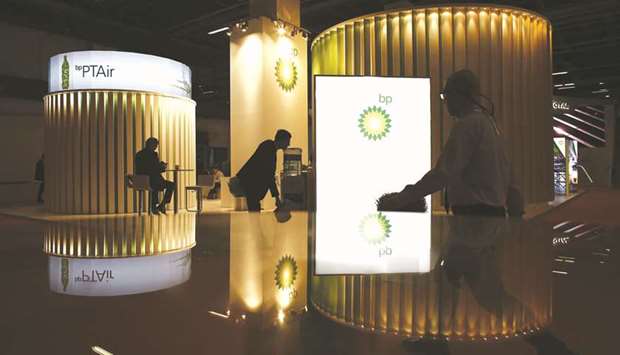BP Plc approved an investment in a major liquefied natural gas project in West Africa, ramping up spending across a continent thought to hold much of the world’s remaining fossil-fuel reserves.
The London-based oil major, with partner Kosmos Energy Ltd, will proceed with the first phase of the Tortue LNG development, which will process gas from a giant field straddling the maritime border of Mauritania and Senegal and ship it to buyers around the world. The company didn’t provide a dollar figure for the investment.
Tortue is the first major gas project to achieve a final investment decision in the basin, which lies just off the westernmost part of Africa. It is one of several developments using gas-liquefaction equipment aboard a ship, rather than traditional onshore facilities, which could help spur the next gas production boom by reducing the time and cost of development.
Tortue “represents the beginning of a multi-phase project that is expected to deliver LNG revenues and gas to Africa and beyond for decades to come,” Bernard Looney, chief executive officer of upstream for BP, said in a statement. “We see this as the start of a new chapter for Africa’s energy story.”
Construction on phase one is expected to begin in the first quarter of 2019 while first gas should flow in 2022. The floating facility is designed to provide about 2.5mn tonnes of LNG a year. BP’s gas marketing division will be the sole buyer of fuel from the first phase.
BP and Kosmos are eyeing further work to fully exploit the estimated 15tn cubic feet of natural gas from the Greater Tortue Ahmeyim field, which Kosmos discovered in 2015. BP’s Looney said in 2017 the basin could hold another 50tn cu ft, equivalent to about seven years of current African gas production at the time.
The project is attractive because it helps BP shift its portfolio in favour of natural gas, which could help it cut its carbon emissions and offer some protection in the case of tighter climate-change regulations in the future. Tortue’s location also gives BP access to key LNG buyers across Europe.
The national oil companies from Maurtania and Senegal each have 10% stakes in Tortue field exploration blocks. BP holds about 60% in each block and Kosmos has the remainder.
Other West African countries, including Nigeria and Cameroon, are seeking to expand their own LNG export facilities to meet potential supply shortages in the next decade.

A BP logo sits on display at the company’s corporate pavilion during the World Petroleum Congress in Istanbul, Turkey on July 11, 2017. The Tortue project is attractive because it helps BP shift its portfolio in favour of natural gas, which could help it cut its carbon emissions and offer some protection in the case of tighter climate-change regulations in the future.
